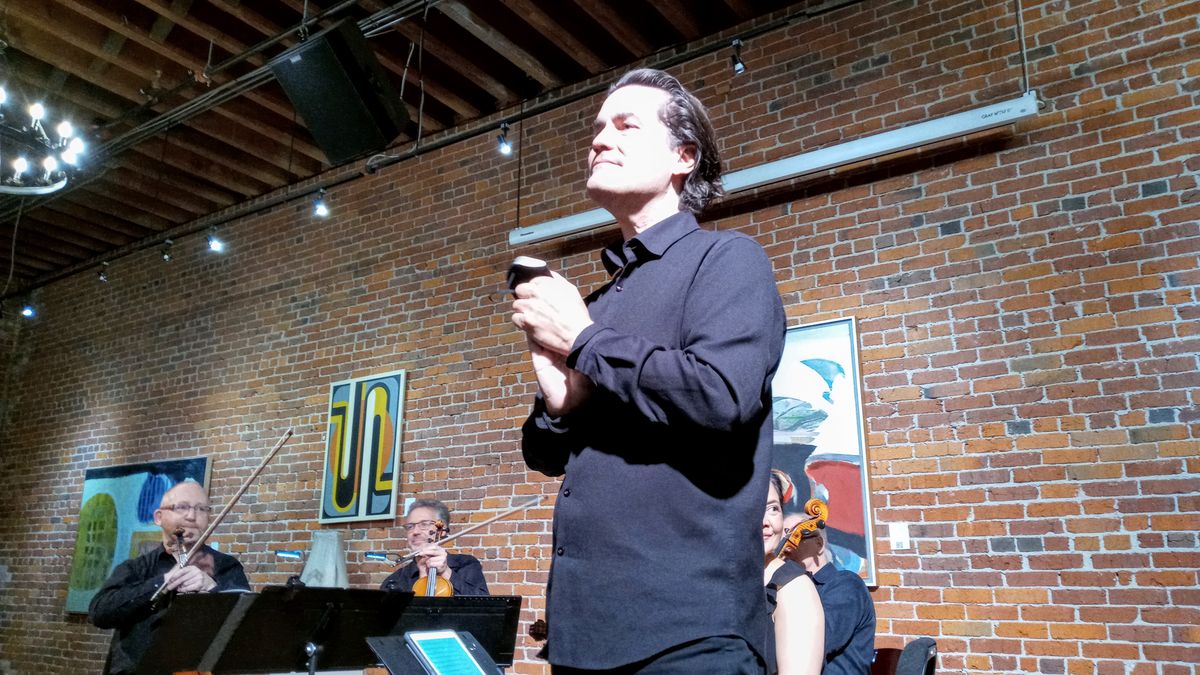Review: Arianna String Quartet masterful in two Northwest BachFest concerts

If you think the job of music director of an international music festival is an easy one, just ask Zuill Bailey, who fulfills that role for Northwest BachFest. Long ago, Bailey engaged brilliant classical guitarist Jason Vieaux to appear last weekend at Barrister Winery. When he learned, less than one week ago, that Vieaux would be unable to appear, he had some fancy switching to do.
Most fortunately, the Arianna String Quartet, which had been scheduled to appear later in the season, was, with the exception of their second violinist, able to make the necessary changes and arrive in time to walk onto the stage at Barrister Winery on Saturday night. The group was comprised of John McGrosso and Keith Redpath, violins; Joanna Mendoza, viola; and Kurt Baldwin, cello.
Despite the short notice and the temporary change in personnel, the group offered two ambitious programs. On Saturday, they performed Beethoven’s witty and elegant String Quartet No 3 in D major Op. 18 No 3 (1799), the gripping String Trio (1944) of Gideon Klein and Franz Schubert’s epic String Quartet No 14 in D minor D.810, “Death and the Maiden (1824).”
On Sunday afternoon, they offered Joseph Haydn’s Quartet in D major Op. 20 No 4, the Langsamer Satz (“Slow Movement”) of 1905 by Anton Webern and the sublime String Quintet in C major D. 956 (1828), widely regarded as the greatest work of chamber music, not only by Schubert but by any composer.
In reviewing a musical performance, the standard of virtuosity is complex since it describes a spectrum between two polar opposites: on the one hand, the ability of the artist to impress the audience with his or her gifts and abilities, and on the other hand, the ability of the artist to disappear from the consciousness of the audience, leaving them with the impression that they are communing with the music itself or, more mysterious still, with the mind of the composer.
The Arianna String Quartet exemplified the latter in its virtuosity. So complete was their technical command of their instruments, mastery of the scores and absolute unity of interpretive purpose that it was though the music was being conveyed unmediated and no other tempos, dynamics or instrumental balances could express the intentions of the composer as perfectly.
Among the trove of delights in the two concerts, two demand special notice. Before hearing his String Trio on Saturday, the name of its composer, Gideon Klein, was unknown to most of the audience. Hearing this tautly constructed, acerbic but compelling piece of music no doubt will move many to learn more about his tragic life and to explore the substantial body of work he was able to produce before his death at Auschwitz.
It was not surprising that the Schubert C major String Quintet was the musical culmination of the weekend, as it occupies hotly contested real estate at the pinnacle of western music. All the qualities that rank Schubert among the greatest composers – his breathtaking lyricism, harmonic and structural audacity and unequaled insight into the tragic nature of the human condition – are epitomized in this Quintet.
Still displaying the same capacity for energy and precision with which they began the weekend, the Arianna Quartet was joined by Bailey, who has always subordinated his great gifts to the common goal of exploring the treasure left by Schubert. Suffice it to say that Bailey and his colleagues left the stage satisfied that their efforts had proved deserving of the trust that Schubert, and the audience, had placed in them.